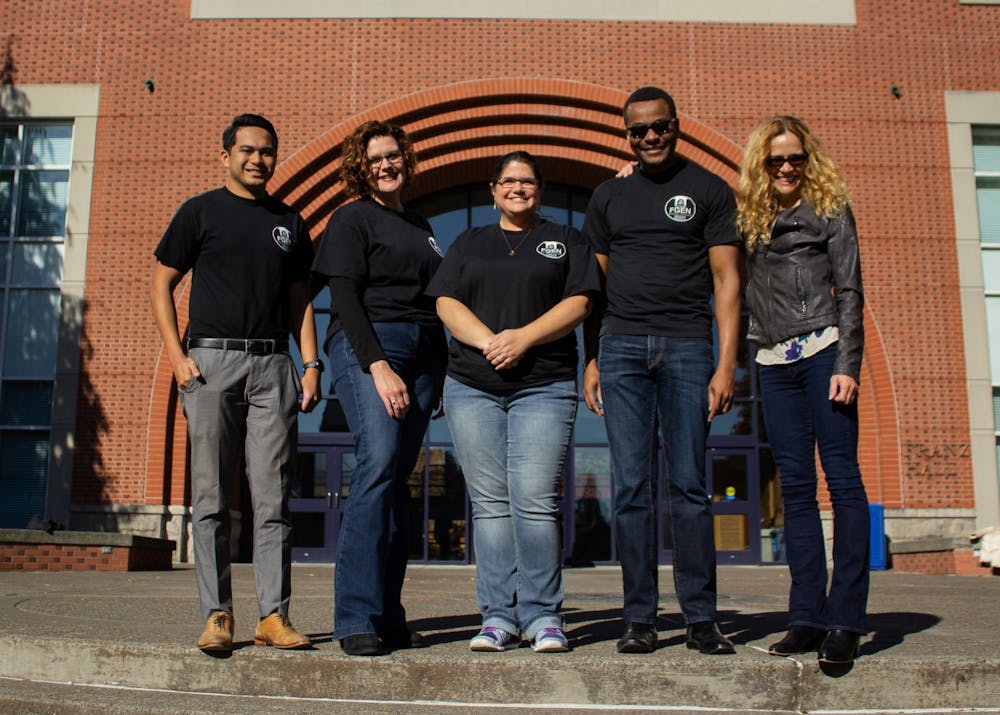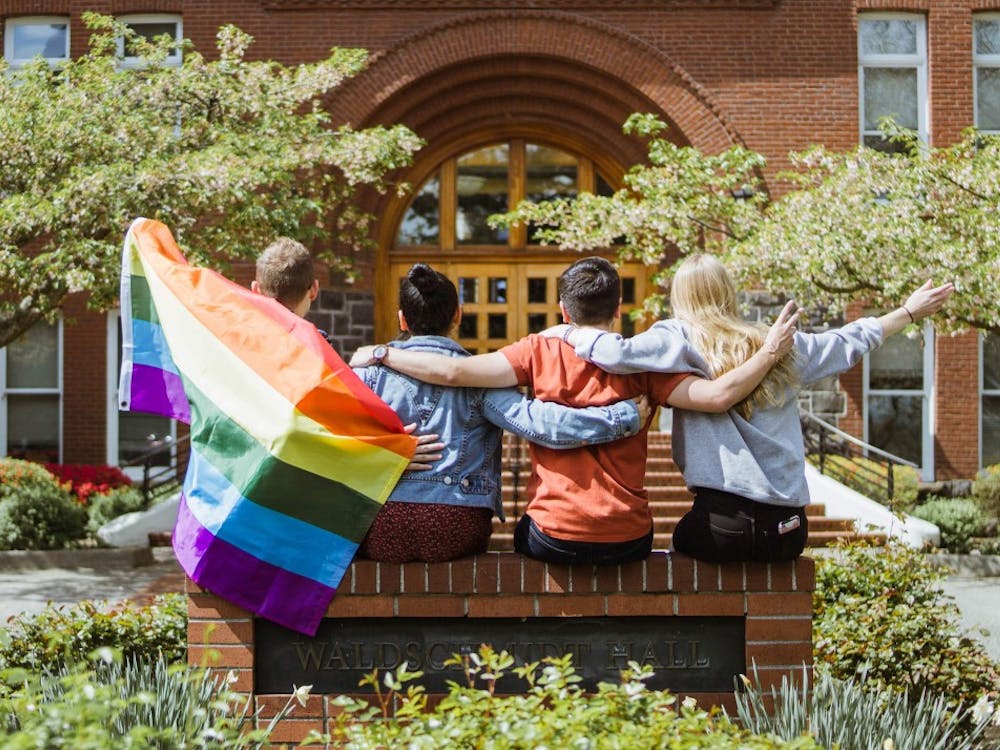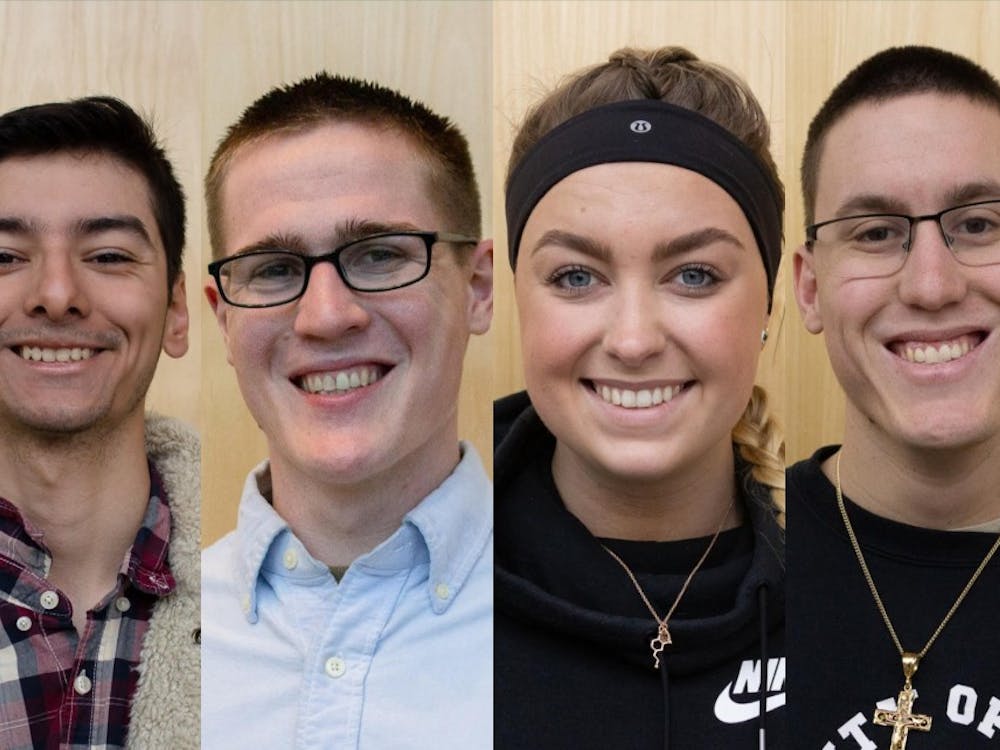In 1989 during her freshman year at the University of Portland, Casey Shillam was doing well in school, but she was struggling in one computer science course. Soon after Christmas, she received a letter telling her that she had earned a “D” in the class, losing her full-ride ROTC scholarship.
Shillam, the first in her family to attend college, didn’t know of other scholarships available, and she left UP after one semester to become a Korean linguist in the Air Force. But she made her way back to UP in 2006, as a professor and eventually as the dean of the School of Nursing.
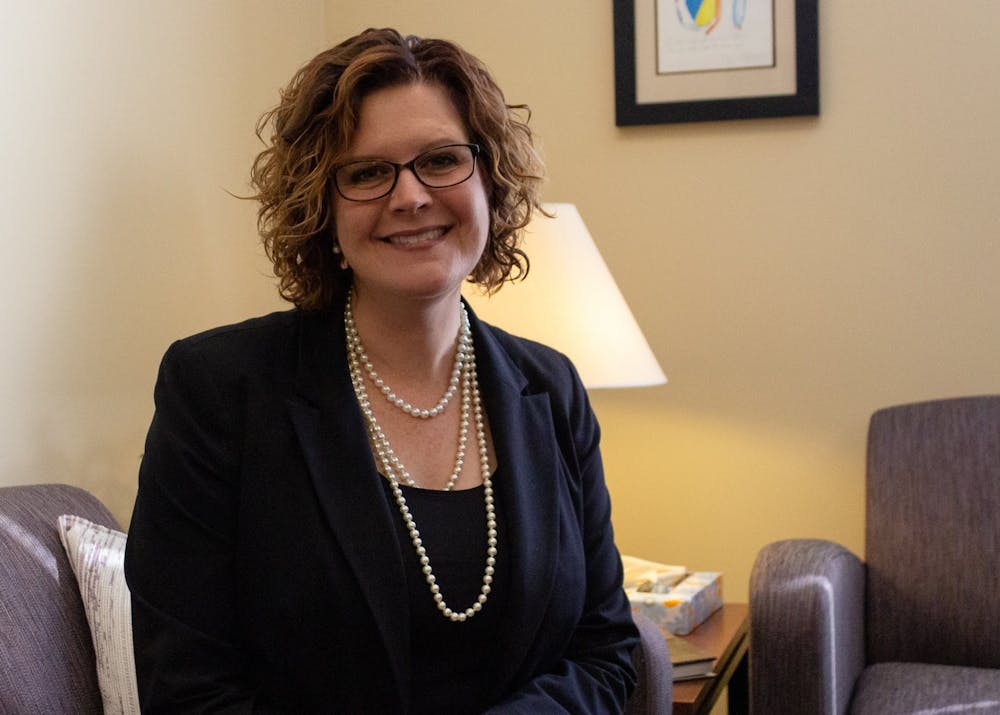
Dean of the School of Nursing Casey Shillam was a first-generation student. In sharing her story, Shillam hopes to affirm first-generation students that they can succeed.
Shillam is one of at least 65 UP professors and staff members who self-identify as former first-generation (FGEN) college students, said Matt Daily, assistant director of the SARC and program manager for special populations and learning assistance. Daily explained that this number is not official, and more faculty and staff are constantly reaching out to him saying that they were first-generation students.
There are 797 first-generation students at UP, about one-fifth of the student body. In the U.S., as of the 2015-16 school year, 56% of undergraduate students are first-generation. UP considers students first-generation if neither parent or guardian has completed a four-year college degree, but definitions vary nationally, Daily said.

Events will be held on campus to celebrate FGEN Day on Nov. 8. Graphic courtesy of Matt Daily.
On Friday, Nov. 8, UP’s FGEN program will coordinate events, such as “wisdom workshops” with FGEN professors and staff and a panel with local elected officials, to celebrate National FGEN Day.
Being a first-generation student means lacking a certain knowledge of navigating the complexities of college, many of the professors and staff said.
“I equate it almost to the health system because that’s such a complex system that if you have somebody in your family who’s from the health system or who knows how to navigate it, you’re a lot better off than not knowing anybody, and I think the same is true with college,” Shillam said. “Not having that, I didn’t know how to ask for help, I didn’t know that I could’ve applied for financial aid, I didn’t know how to study.”
Theology professor Simon Aihiokhai described being overwhelmed the first time he visited his college library — how was it organized and what did the codes mean, he thought? James Peña, director of Schoenfeldt Hall, explained that information like how to address and email a professor can also prove elusive at first for FGEN students.
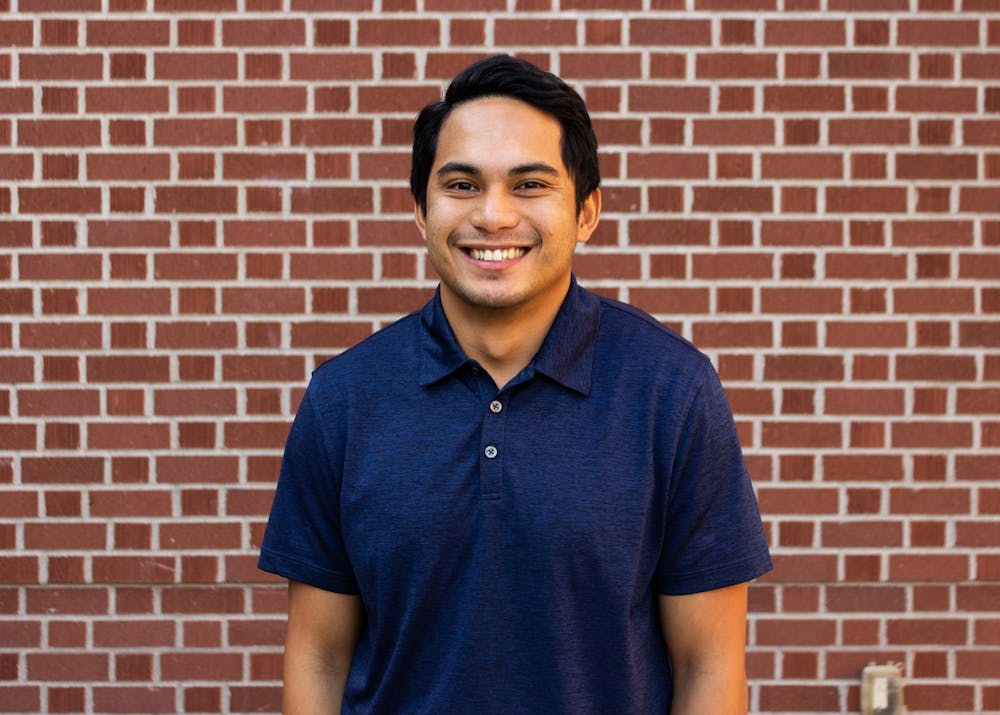
Schoenfeldt hall director James Peña encourages first-generation students to reach out to both friends and professors for help.
While many FGEN families support their students’ decision to attend college, they sometimes don’t know the best ways to offer this support, Peña said. Psychology professor and chair Deana Julka described growing up in a family that valued hard work but didn’t expect their children to attend college. Still, all five siblings in her family earned graduate degrees, a feat she attributes to them viewing education as a ticket to freedom of choice.
“(A professor) was the first person to mention graduate school. I didn’t even know what that was. I think my dad’s response was something like, ‘Is that for people who can’t graduate? Do you need extra help?’” she said with a laugh.
The professors and staff members also recalled fewer resources and programs directed at FGEN students when they attended college, but said they found community in other ways, through professors who provided support and other FGEN students, whom they often found by chance.
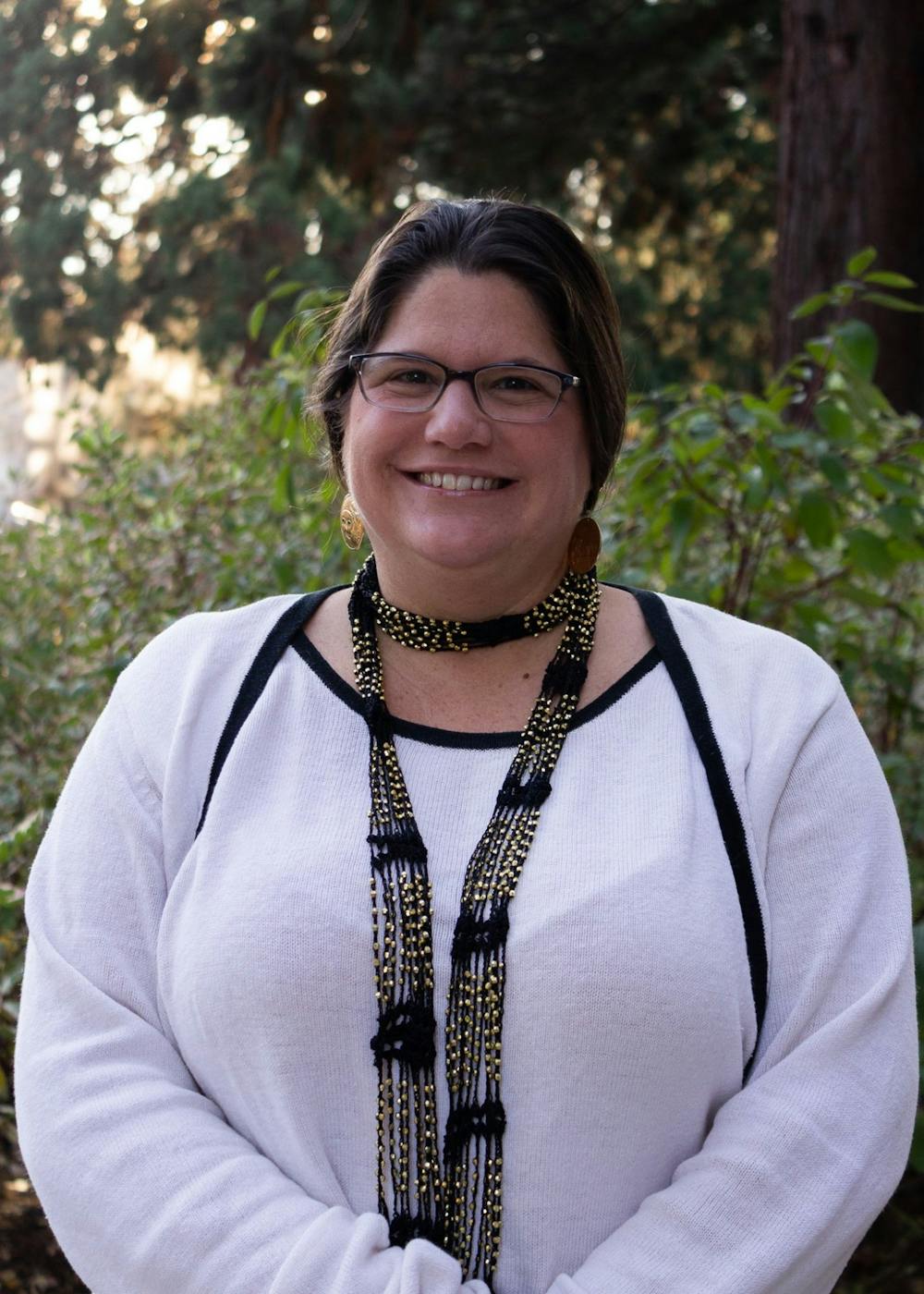
Montana Hisel-Cochran, a professor and the coordinator of the Global Acumen Initiative in the Pamplin School of Business, reminds first-generation students to be patient with their loved ones back home.
Montana Hisel-Cochran, a professor and the coordinator of the Global Acumen Initiative in the Pamplin School of Business, attended Adams State College in Colorado, a school that she said had a large population of first-generation, low-income students. In college, people in her dorm became part of her support system. Many of them were FGEN.
“This was, though, before FGEN was a thing. There was no recognition at all about the fact that your parents didn’t go to college. But we were naturally drawn to each other based on some of our experiences, at first without knowing it,” Hisel-Cochran said. “The idea of community, and that you can just enjoy the highs and the lows together without stressing each other out. We would watch ‘Friends’ or ‘Beverly Hills 90210,’ and then study for a couple of hours afterward.”
Peña also said that his group of friends was critical to his well-being in college but that he still struggled to ask for help, from both friends and professors, as much as he could have.
“(Don’t) hesitate to reach out. Get rid of the notion that you have to do things on your own,” Peña said. “You’ll be surprised at how willing people are to help and support.”
Hisel-Cochran’s experiences as an FGEN student in college also gave her a different understanding of how to stay in touch with people at home after starting college.
“Give grace to your friends and family back at home. You change a lot in college. But a lot of times, nobody at home has changed. And you’re like, ‘What is with you?’” Hisel-Cochran said. “Share and express with them your adventure, but also encourage them and love them for where they are. It’s going to be, especially for FGEN students, a really different experience going home to your family.”
Experiencing college as first-generation students themselves also allows FGEN professors and staff to relate to and understand first-generation students differently, they explained.
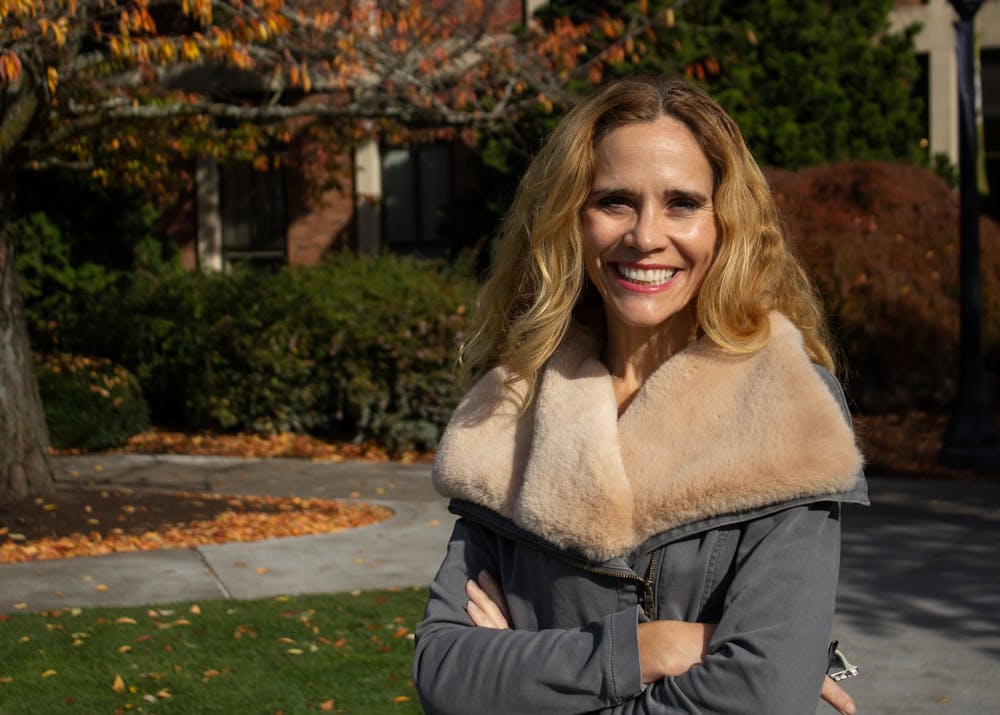
Psychology professor and chair Deana Julka was a first-generation student. She believes that her experiences help her relate to first-generation students meaningfully.
“I have a real connection with people who are working through this on their own that I might not even have with my own children, who are going to have a huge advantage,” Julka said. “And whether it’s FGEN or any other situation, I feel like it gives me greater empathy and compassion for any challenge people are dealing with.”
Riley Beavers, a junior business major, said that Hisel-Cochran goes out of her way to mention resources available to students or events on campus because she knows that FGEN students and their parents may not be aware of them.
“I can support them maybe in a different way if they feel comfortable talking to me about homesickness or if their parents didn’t know how to fill out the form or something like that,” Hisel-Cochran. “I always talk about it (in class), and now we have our lovely FGEN Friday shirts, so when I wear my shirt, I talk about it specifically as well.”
Sophomore economics major and FGEN student Yeudith Valdovinos explained that she values Hisel-Cochran’s approach in class.
“Whenever we’re in class, she’ll tell us anecdotes of how she did things in her professional career. And I’m like, ‘Wow, that’s me!’” Valdovinos said. “That dynamic was there, and it was really cool to experience. Just because I’m starting from zero, essentially, doesn’t mean that I can’t be a professor.”
Several professors also emphasized that they prioritize affirming FGEN students because they know the value of this encouragement.
“I know when I’m reading the paper of a first-gen. Because they write not with certitude, and then I have to appreciate and affirm that,” Aihiokhai said. “Education is always about mentorship on different levels. It’s not just dishing out information. It gives a sense of bonding to students who are FGEN to say, ‘I thought I was alone and this was my planet, but if this person who is my professor and has attained this level of success in the academy is like me, then I have someone to look up to.’ That’s why I intentionally embrace that part of identity.”

Theology professor Simon Aihiokhai embraces his identity as a former first-generation student. Aihiokhai recognizes that affirmation and mentorship are especially meaningful to FGEN students.
This feeling of uncertainty and not belonging often takes the form of impostor syndrome, professors and staff said. Impostor syndrome means feeling like a fraud about your accomplishments and maybe thinking that they happened by mistake. First-generation college students may experience impostor syndrome, and famous FGEN students, such as Michelle Obama, have spoken about confronting it.
Professors and staff explained that they believe impostor syndrome never disappears, and they try to be transparent with students about how they push its voice aside.
“It’s amazing to see their faces when I talk about being a first-gen student and that I struggled with but still struggle with impostor syndrome. Everybody feels it, at some point, at some level,” Shillam said. “Any time I feel doubt, I purposefully reflect on everything that I have accomplished in my life. It helps to give me that confidence that I know I am capable of doing a lot.”
Many students said that they appreciate her attitude.
“When I can look at someone like Dr. Shillam and all of her success, I also want to embody that and be that type of student and that type of nurse,” said Victor Rodriguez Valdovinos, a senior nursing student. “She’s open about impostor syndrome, and for even her to feel that sometimes, It lets me know that I’m not alone and can continue to accomplish my goals.”
She and other professors and staff members said they believe the FGEN program at UP excels at helping students understand what it means to be FGEN and the advantages it brings, especially if students may have seen their FGEN identities presented as a deficit.
“That courage of taking that first step when no one in his or her family has taken that step before, I think that that really does empower people, even if they don’t necessarily feel it,” Shillam said.
Finally, one of the most important aspects of being a first-generation college student is the different perspectives and ways of understanding they bring, the professors and staff members said.
“How do we grow in wisdom? By the questions that we ask,” Aihiokhai said. “First-gens come to the conversation and to the community with new and refreshing perspectives. They learn from others too, and others also learn from them. See yourself as coming with a different perspective, different gifts, different talents that will be relevant and useful to the university.”
Dora Totoian is a reporter and the Opinion editor for The Beacon. She can be reached at totoian20@up.edu.



